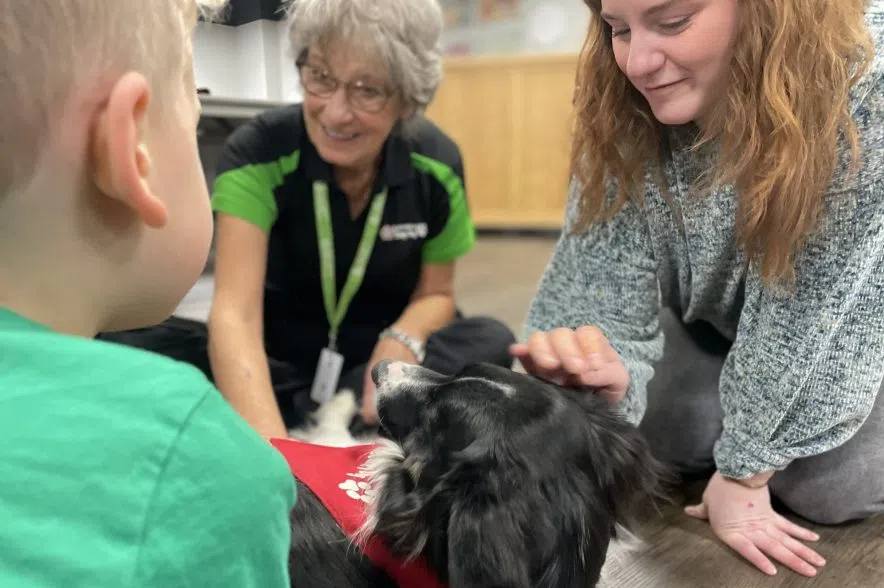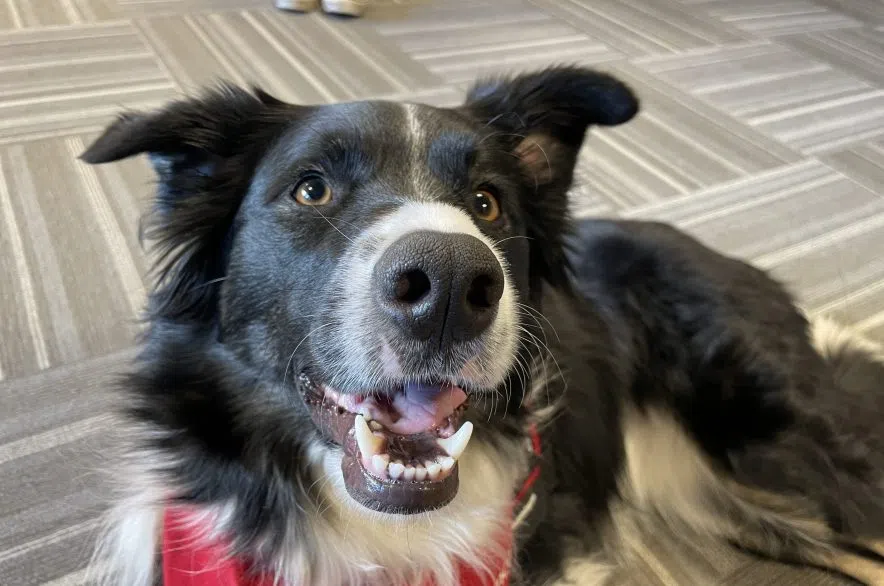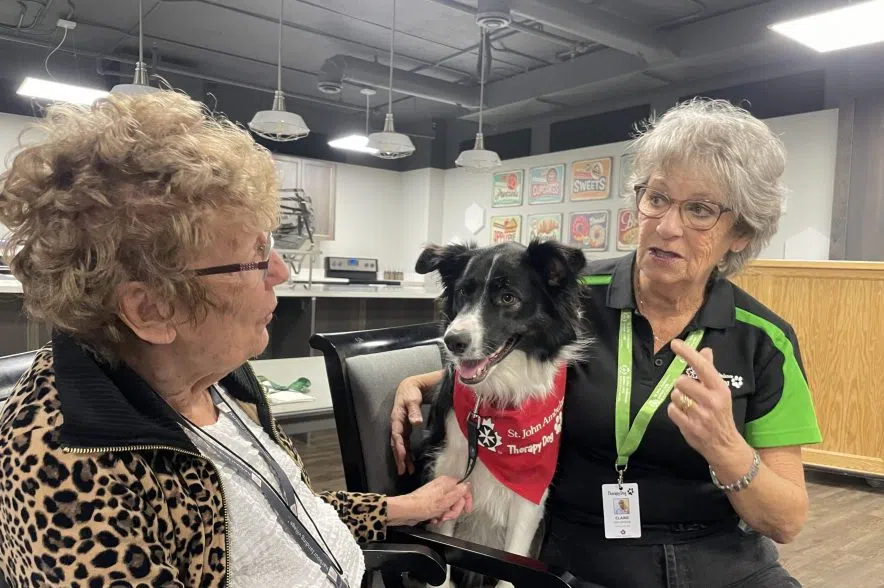One of St. John Ambulance’s 160 therapy dogs is bringing a little more ‘Joy’ to the world.
Residents and kids at Regina’s Harbour Landing Village had the chance to stop and play with Joy, a two-year-old therapy dog. For Sadie Lipp, a resident in the seniors home, Joy brings recollections of a happy time.
“It brings back a lot of memories,” said Lipp. “I was born and raised on a farm, so we always had a dog.”
She said Joy reminds her of how “wonderful and understanding” her old farm dogs were.
Elaine Smith, Joy’s handler, says spends around 40 hours each week “chauffeuring” Joy around the area to help different people. Most often, the pair spend time at the Regina General Hospital.

Joy, one of the St. John Ambulance therapy dog works her magic at the Harbour Landing Village in Regina. (Gillian Massie/ 980 CJME)
“I love meeting the people, and just seeing the difference she makes meeting the people,” said Smith. “It’s good. It’s a good feeling.”
Smith said she always shows up early, because it often takes a few minutes to get through the door with Joy around.
“It’s great, because it helps out with so many different things,” said Lipp. “It’s hard to gain sponsors, and we need them so bad.”
Phillip Bourget, a resident in the Harbour Landing Village, echoed that amazement.
“They bring comfort, especially a dog like that,” he said.
Bourget said he enjoyed seeing the kids from the daycare playing with Joy during her time at the village.

Therapy dog Joy and her handler Elaine Smith spend many hours volunteering with St. John Ambulance at the Regina General Hospital. (Gillian Massie/ 980 CJME)
Lisa Schwann, the director of community services with St. John’s Ambulance, said as a non-profit organization, the group needs support from the community.
The St. John Ambulance Therapy Dog Team’s sponsorship program funds the dogs and their handlers, who provide mental health support across the province. Businesses can sponsor a dog for $750 dollars a year, and by putting it into the company business plan, it becomes tax deductible.
READ MORE:
- Merlot the RPS therapy dog retires after eight years on the job
- Therapy dogs honoured after work during Humboldt tragedy
“We need people to help us,” said Schwann. “Most of the places we go can’t afford to give us anything. We can’t survive, let alone thrive and visit these places, without the help of sponsors and donations.”
Schwann said the therapy dog teams are key members of the emergency response unit, providing mental-health support this year during wildfire evacuations and the Carberry bus crash.
The dog teams also visited hospitals after the Humboldt bus crash in 2018.
Schwann said being able to sponsor a dog and write it off in the business plan is a win-win situation.
“Being a therapy dog handler myself, it’s amazing to walk into a facility and you see people who are depressed or down, and their faces just light up at the sight of your dog,” she said.











